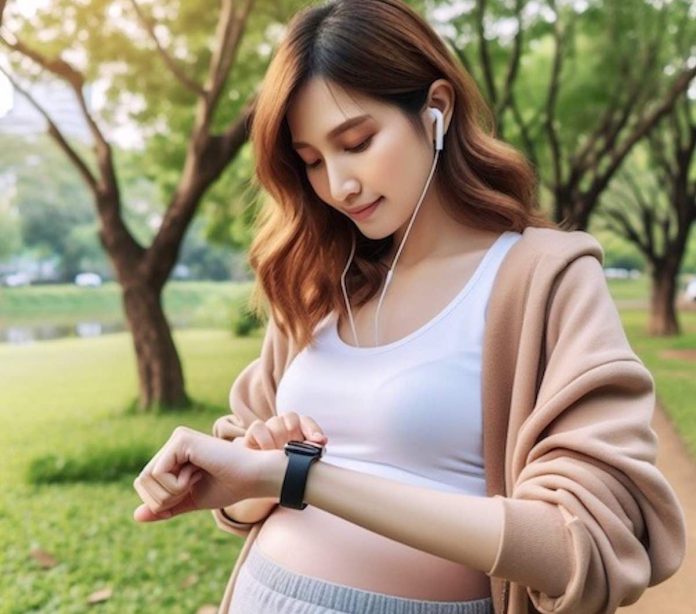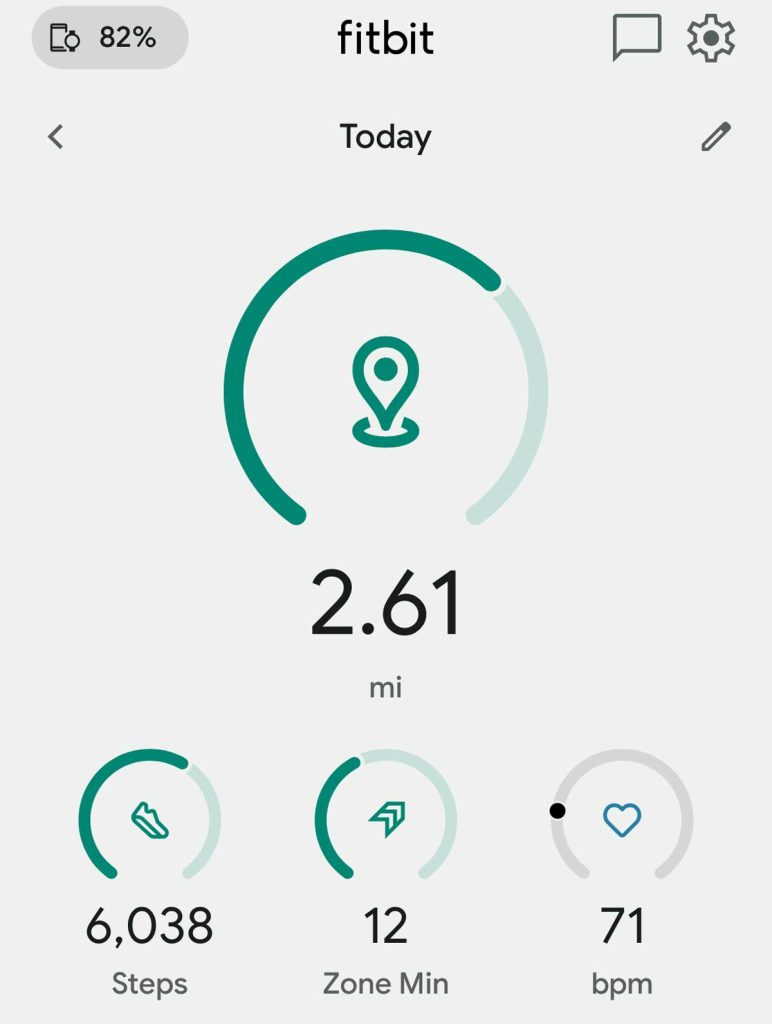You might think that gaining weight is always a good thing during pregnancy, but research indicates that as many as three-quarters of pregnant women actually gain too much weight.
The amount of weight a woman gains during pregnancy is important for her health while pregnant and the long-term health of both the woman and her baby.
Gaining too much weight during pregnancy can result in a baby who is born too large, leading to delivery complications, cesarean delivery, and a child more prone to obesity. It also increases the woman’s risk of postpartum obesity.
A new study entitled “Fitbit Device Use in Overweight Pregnancy Women to Improve Adherence to Gestational Weight Gain Guidelines,” sponsored by the University of Arizona, aims to see if using a Fitbit while pregnant helps women better manage their weight and avoid excessive weight gain and the complications it can lead to.
Contents
Related reading
- New study shows that 9000+ steps a days equals healthier and happier kids
- New study shows an increase in your daily step count can do wonders for blood pressure management
- 5 best smart scales that work with the Fitbit app
About the Fitbit Device Use in Overweight Pregnancy Study
While previous research shows that wearing a Fitbit (or similar wearable) helps non-pregnant women reduce weight gain, this interventional study focuses on how the data provided by Fitbit can help pregnant women increase their physical activity and stay within the National Academy of Medicine’s (Institute of Medicine) healthy weight guidelines for pregnancy.
The central hypothesis is that wearing a Fitbit will help pregnant women better manage their gestational weight gain during pregnancy via Fitbit’s measurement and reporting of physical activity (step counting and calories burned), heart rate, sleep quality, and other health data.
The main idea in this study is the power of self-realization. Wearing a Fitbit provides women with data and feedback on their daily activities and, hopefully, encourages them to increase their physical activity.
The study includes two arms with a total of 60 participants who are clinically obese or overweight (body mass index over 25) before or at the beginning of their pregnancy.
One group of pregnant women will consistently wear a Fitbit throughout their pregnancy (day and night) and must monitor their health and activity data using the Fitbit app.
The second group of women will not wear a Fitbit throughout their pregnancy.
Both groups will receive the same standard prenatal care, with their weight measured at pre-pregnancy, at recruitment (ideally, the prenatal visit) at 28 weeks, at delivery, and at six weeks postpartum.
While the primary study endpoint is to see if wearing a Fitbit helps women meet their weight gain guidelines during pregnancy, there are also important secondary endpoints.
These secondary outcome measurements include monitoring the number of incidences of intrauterine growth restriction, fetal macrosomia, gestational hypertension, gestational diabetes, preeclampsia, preterm delivery, NICU admission, and others.
The expected study start date is February 2024, with an anticipated completion by Summer 2025.
Why we like this study
While most women understand that weight gain is normal during pregnancy, they may not understand the risks associated with too much weight gain.
The advice most pregnant women get to maintain a healthy weight gain is to watch what they eat, consume healthy foods, and get routine exercise. That’s easier said than done!
Fitbits (and similar wearables) provide a relatively inexpensive way to monitor and get feedback on daily activity (such as step counting and calorie burn) and sleep quality in a user-friendly, easy-to-understand report inside the Fitbit app. Study participants can then use that data to increase their activity as needed. They can also follow recommendations inside the app, including adding more physical activity in their day or tips to improve sleep quality.
Given that previous studies show that Fitbits help women who aren’t pregnant reduce weight gain by encouraging them to increase their physical activity, we expect similar results in this study with pregnant women.
Google takes aim at obesity and metabolic health 
In addition to this new study on weight gain during pregnancy, Google is taking a hard look at how its line of wearables (Fitbits and Pixel Watch) can help people monitor their metabolic health, a key indicator of your overall health and risk of becoming overweight or obese.
Recently, Google announced the WEAR-ME Study, in partnership with Quest Diagnostics, that looks at how wearables like Fitbit and Pixel Watch can help people better understand and manage their metabolic health.
While genes matter, your environment, what you eat, how much you move, and how well you sleep greatly impact your overall metabolism and how well it works.
An unhealthy metabolism can hurt your health in many ways, such as making your heart work too hard, making you age faster, or causing problems like high blood pressure, high cholesterol, and diabetes.
Unfortunately, most people have trouble keeping their metabolism healthy, even if they are not overweight or obese. Recent studies indicate that only 12% of American adults have a healthy metabolism.
Google designed the WEAR-ME Study to see how their wearables can measure your metabolism and provide you with tools and insights to understand and improve your metabolic health.
The study works two ways, with Google gathering data from its onboard sensors and Quest measuring key indicators in your blood.
Fitbits and Google devices measure things like your heart rate, how your heart changes, how you sleep, and how stressed you are. These health measurements help to measure how healthy your metabolism is and if it is getting worse.
Blood tests reveal things that your wrist can’t, like your cholesterol, sugar, and insulin levels.
Combining this data together from the wearables and blood tests, Google hopes to create tools via AI (artificial intelligence) and machine learning that can tell how healthy your metabolism is, what you can do to improve it, and even prevent diseases caused by a bad metabolism.
How to participate in the WEAR-ME Study
If you’re interested in being a part of the WEAR-ME study, it’s open for enrollment through the Google Health Studies app.
To be eligible, you must own and use a Pixel Watch or Fitbit, be between the ages of 21 and 80, live in the United States (except Hawaii, Alaska, and Arizona), and use an Android phone.









